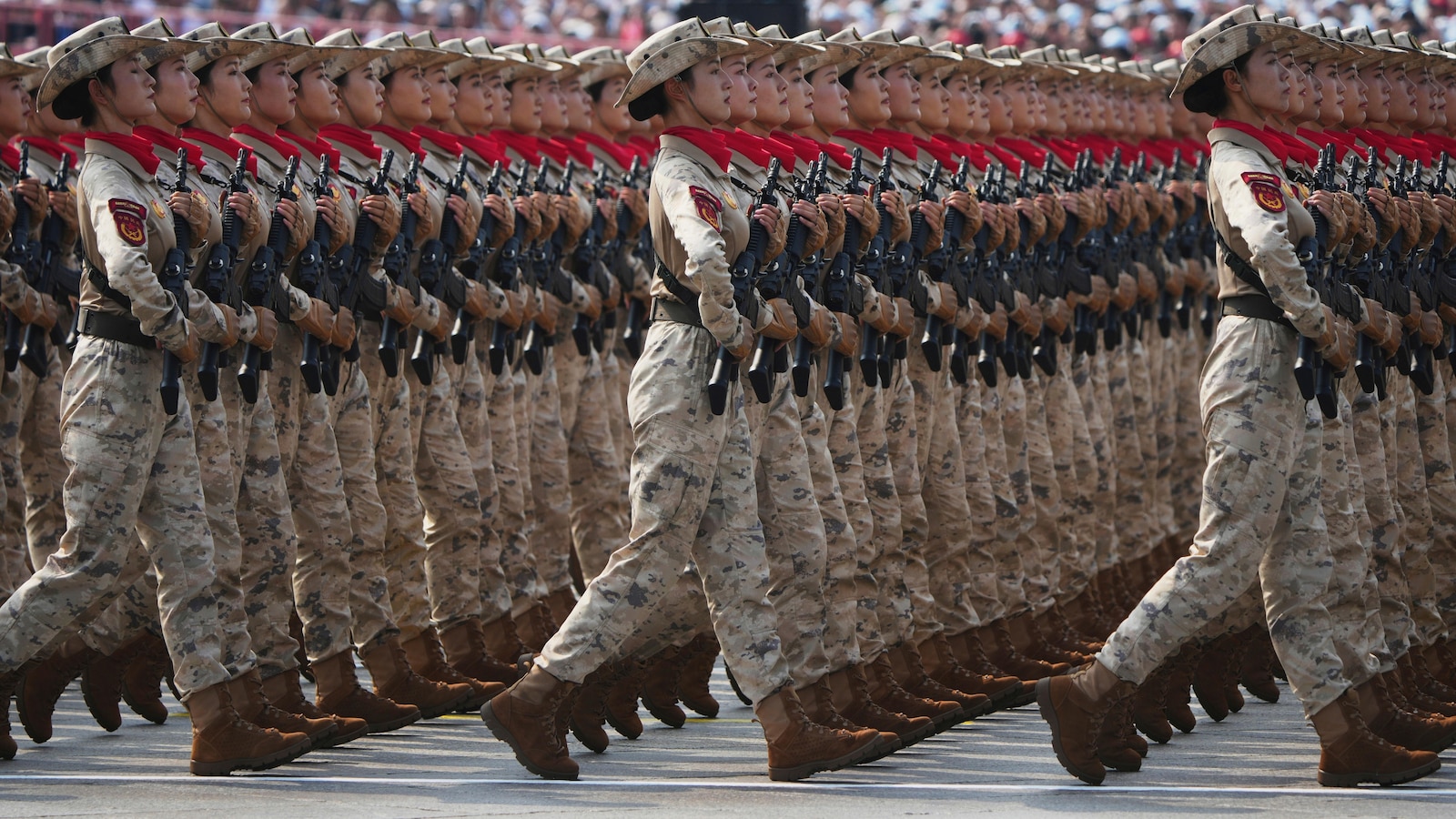China parades advanced weaponry as it marks 80th anniversary of World War II's end
President Xi Jinping honors veterans and emphasizes national strength as foreign leaders, including Vladimir Putin and Kim Jong Un, attend the 90-minute event in Beijing.
Beijing — China staged a grand military parade Wednesday to mark the 80th anniversary of the end of World War II, showcasing aerial and underwater drones, hypersonic missiles, fighter jets and bombers in a 90-minute event intended to display the country's growing military capabilities.
President Xi Jinping spoke before the parade, paid tribute to Chinese veterans of the war and framed the commemoration as a signal that China cannot be bullied and must be strong enough to stand up to foreign powers. Xi, who has pursued a campaign since taking power in 2012 to build a more assertive China, said the Chinese people are "not afraid of violence and are self-reliant and strong," and warned that humanity must choose between peace and war and between dialogue and confrontation.

The ceremony drew leaders from about two dozen countries, including Russian President Vladimir Putin and North Korean leader Kim Jong Un, underscoring the diplomatic weight Beijing placed on the event. Chinese state media framed the commemoration as both an homage to the enormous human toll China suffered during Japan's invasion in the 1930s and 1940s and as a demonstration of how the country has modernized its armed forces.
Analysts and officials cited the parade as an effort to bolster domestic support for the ruling Communist Party by highlighting the nation's technological and military progress since World War II, when China was one of the major theaters of the conflict and millions of Chinese civilians and soldiers died. The public display of new weaponry, including advanced missiles and unmanned systems, reflects Beijing's desire to project influence internationally and reassure domestic audiences of the military's capabilities.
Xi has repeatedly cast China as a stabilizing force in an uncertain world, even as his rhetoric stresses national rejuvenation and readiness to defend the country's interests. The parade intertwined that messaging with remembrance of wartime sacrifices, presenting the modernization of the People's Liberation Army as part of a broader narrative of national revival.
The event also has strategic implications for regional security, as the public unveiling of hypersonic systems and unmanned platforms signals Beijing's growing emphasis on high-end technologies that can affect future conflicts. Foreign leaders' attendance provided a platform for Beijing to showcase its bilateral relationships, though the parade's primary audience appeared to be domestic, aimed at reinforcing the Communist Party's legitimacy through displays of strength and unity.
China's commemoration followed decades of shifts in how the war is remembered domestically and internationally. Officials emphasized continuity between historical suffering and contemporary resilience, while presenting military modernization as a necessary component of national defense. The parade closed the formal observances in Beijing after several hours of ceremonies and flyovers watched by officials, foreign dignitaries and large crowds along the parade route.